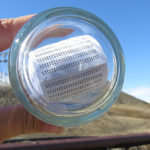Japanese House Series
2010 - Photography (Photography)
25.59H x 32.68W inches
Tomoko Yoneda
Yoneda’s Japanese House (2010) series of photographs depicts buildings constructed in Taiwan during the period of Japanese occupation, between 1895 and 1945. Yoneda focuses both on the original Japanese features of the houses and on details that have been altered since the end of the occupation. The yet-to-be acknowledged history of the occupation of Taiwan and other East Asian countries by Japan during World War II is subtly disclosed in these pictures. Instead of presenting monuments, the artist chooses to depict houses where the domestic lives of local Taiwanese are still unfolding today. The complexity of history is thus foregrounded by the overlapping of the everyday, the memory mixing with the remains. Former Residence of the Daughter of the Japanese Prime Minister, Kentaro Suzuki, Who Accepted the Potsdam Declaration and Full Surrender to the Allied Powers, Ending the Second World War, Qingtian Street, I depicts a dusty room with Japanese window frames but no views. Its title offers a biography of the original inhabitants and their historical role before the postwar Chinese Nationalist takeover. The wall behind the counter in Former House of General Wang Shu-ming, the Chief of Staff Under Chiang Kai-Shek, Cidong Street, I has been painted a deep red. The detailed title subtly suggests how local residents may have subsequently altered the home’s original paint colors to be more “Chinese.”
Photography is Tomoko Yoneda’s primary medium. Influenced by both journalism and archaeology, the London-based artist tries to minimize subjectivity in her work and keep her subjects as real and open as possible, leaving space for interpretation by the viewer. Often the sites she documents appears insignificant and nondescript, lacking any visual references that might trigger direct associations with historical events. Their lengthy titles, however, reveal the identities of the places by providing historical and political context. The haunted feeling generated by the emptiness of the locations evokes unsettled spirits of the past, and seems to invite a moment’s reflection.
Colors:
Related works featuring themes of: » Japan, » Photography, » Japanese
» see more

© » KADIST
Hiraki Sawa
2006Hako (2006) depicts a mysterious and dystopic landscape where the world becomes flat: distance between different spaces, depth of field and three-dimensional perceptions are canceled...

© » KADIST
Naoya Hatakeyama
Naoya Hatakeyama’s series Rikuzentakata (2011) documents the devastating aftermath of the 2011 Tohoku earthquake and tsunami in Japan...

© » KADIST
Burak Delier
2013Burak Delier’s sculpture Homage to Balotelli’s Missed Trick is a symbol of resistance to the demand for success and performance...

© » KADIST
Motoyuki Daifu
2010Seven family members and a cat all squeezed into the small five-room house, where Motoyuki Daifu grew up in Yokohama...
Other related works, blended automatically
» see more

© » KADIST
Hiraki Sawa
2006Hako (2006) depicts a mysterious and dystopic landscape where the world becomes flat: distance between different spaces, depth of field and three-dimensional perceptions are canceled...

© » KADIST
Naoya Hatakeyama
Naoya Hatakeyama’s series Rikuzentakata (2011) documents the devastating aftermath of the 2011 Tohoku earthquake and tsunami in Japan...

© » KADIST
Phillip Maisel
2015While his works can function as abstract, they are very much rooted in physicality and the possibilities that are inherent in the materials themselves...

© » KADIST
Koki Tanaka
2009Walking Through is one of a series of videos—sometimes humorous, often absurd—that record the artist’s performative interactions with objects in a particular site...
Related works sharing similar palette
» see more

© » ARTS EQUATOR
Shock Horror: The Southeast Asian monsters we love | ArtsEquator Thinking and Talking about Arts and Culture in Southeast Asia ArtsEquator Viewpoints Illustrations by Divyalakshmi and Natalie Christian Tan November 1, 2021 ArtsEquator chats with five writers about their favourite horror characters and monsters from Southeast Asian lore and mythology...

© » KADIST
Camel Collective
2018Gated Commune , a video by Camel Collective, is a critique of the complex, and often obtuse, language used to describe sustainable development projects...

© » ARTS EQUATOR
Migrant Ecologies Project: A Grain of Wheat Inside a Salt Water Crocodile | ArtsEquator Thinking and Talking about Arts and Culture in Southeast Asia Grain of Wheat July 8, 2019 For the benefit of the possible intelligences that may find these treasures after humans have long gone, we have translated one of the photographs of our wheat gleaning ceremony in Singapore into binary code...
Related works from the » 2010's created around » London, United Kingdom
» see more

© » KADIST
Matt Mullican
2018Mullican’s Stick Figure Drawings depict characters reduced to their most basic graphic representation...

© » KADIST
Ryan Gander
2012Epiphany…learnt through hardship is composed of a bronze sculpture depicting the model of the little dancer of Degas, in the pose of a female nude photographed by Edward Weston (Nude, 1936) accompanied by a blue cube...
Related works found in the same semantic group
» see more

© » KADIST
Yuichiro Tamura
2017The installation Hey Daddy, Hey Brother comprises a series of “Sukajan” jackets, which Tamura collected over a period of several years...






